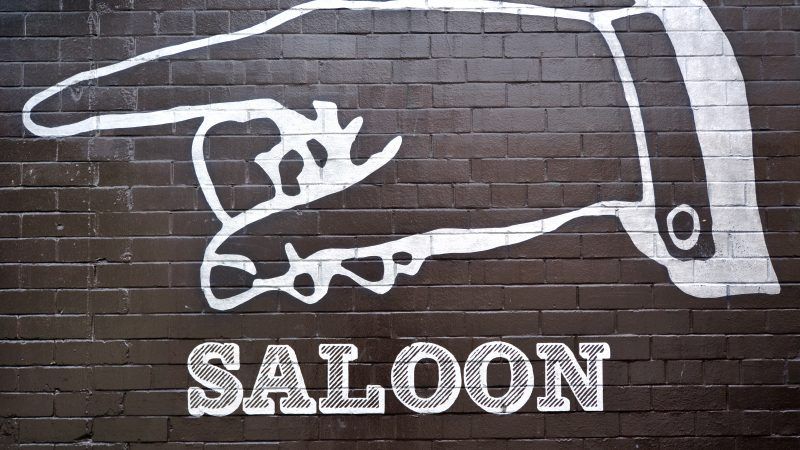Lawmakers in Hawaii, Texas, and Georgia Are Making Alcohol Sales More Difficult, While Pols in Alabama and Wisconsin Embrace Liberalization
Hawaii's 10-cent booze tax draws ire of brewers, while Alabama moves toward legalizing alcohol delivery.

America's alcohol laws—particularly those at the state and local levels—continue to evolve. But while that evolution often moves America toward making it easier for adults to buy, sell, and consume booze, far too often, policy moves in ways that do just the opposite.
State and local legislation currently under consideration in several states provides ample evidence of both the good and the bad. And it does so around a whole host of alcohol issues, including alcohol bans, licensing, taxation, delivery, and to-go drinks.
Chief among the recent bad alcohol developments is this one in Texas, where a prospective restaurant owner is fighting his town's dry past—and present. In November, voters in the then-dry town of Olney ended its complete ban on alcohol sales, which had been in place since 1909. The campaign was spearheaded by local businessman Oscar Muniz, who said he planned to open a restaurant in Olney that sells alcohol.
While voters clearly favored lifting the ban, not everyone was on board.
"Yes, on one hand, you might not have to drive 10 miles to get your beer, but on the other hand, what damage does it do," Chad Edgington, a pastor in Olney, said before the vote.
Despite Olney voters having lifted the century-old alcohol ban, the city council appears unmoved.
"Following an election that cleared the way for alcohol sales in Olney, city council members are moving forward with a plan that would ban alcohol sales within 1,000 feet of a school," reports KFDX. Those same reports also note that such a radius restriction would likely be illegal under Texas alcohol regulations.
But even if those rules did not prohibit such draconian restrictions, any radius rule in Olney—which covers just two square miles—would effectively serve as a de facto continuation of the town's century-old alcohol ban.
Skepticism and disdain over alcohol sales is also a driving force in Georgia, where a county commissioner is fighting the approval of more alcohol licenses in her district. Macon-Bibb County Commissioner Elaine Lucas is holding up approval of a discount beer and wine shop because, she said, the site the prospective licensee wants to occupy is already "overpopulated" with alcohol sellers. Lucas, along with at least one other commissioner, is concerned about the store's proximity to schools and churches.
But the city has already determined the beer and wine shop complies with any proximity requirements, something at least one commission member is noting.
"I would like to remind my fellow commissioners if it meets the requirements of the law, we don't have a legal basis to deny the licenses," says commissioner Mallory Jones. "So all you're doing is encouraging a lawsuit."
Meanwhile, in Hawaii, a state senate commerce committee voted unanimously this week to approve a new 10-cent tax on all alcohol beverages sold in the state. The law, if adopted, would sunset in June 2024.
Food and beverage groups large and small oppose the measure. While Anheuser Busch lobbyist Tim Lyons told lawmakers the tax would dampen employment during the already terrible economic climate, driven by COVID-19 and related shutdowns, Garrett Marrero, president of the Hawaiian Craft Brewers Guild, said the new tax would "absolutely hurt[] the small craft brewers far more than it does very biggest producers."
While lawmakers in Hawaii, Texas, and Georgia are busy making alcohol sales more difficult, lawmakers in other states are doing much the opposite.
Take Alabama, where the state's senate judiciary committee moved last week to adopt a law that would lift a statewide ban on the delivery of beer, wine, and spirits to legal buyers in the state. While state laws vary, many allow some form of alcohol deliveries. The Alabama bill, S.B. 126, which still has to survive the legislative process in order to become law, has the support of the alcohol beverage industry.
Other states are making similarly good moves. In Wisconsin, three bipartisan bills under consideration in the state senate would deregulate various facets of alcohol sales.
The first, S.B. 57, would provide similar relief—home deliveries of alcohol—to that found in the Alabama bill. The second, S.B. 22, would allow licensed bars and restaurants to sell to-go cocktails. A third bill, S.B. 56, would allow consumers who buy alcohol by phone or online to have that alcohol brought out to their car while parked at the seller's retail location.
"COVID-19 has expedited the need for these types of reforms," says Rep. Gary Tauchen, R–Bonduel, who sponsored two of the three Wisconsin bills.
Indeed, as I've already discussed at length, the ongoing pandemic has spurred a good deal of necessary (if imperfect) alcohol deregulation in this country, particularly at the state and local levels. These Alabama and Wisconsin bills are great examples of the type of alcohol reforms Americans and the economy need to recover. Lawmakers in other states—including Hawaii, Texas, and Georgia—should take note.


Show Comments (32)